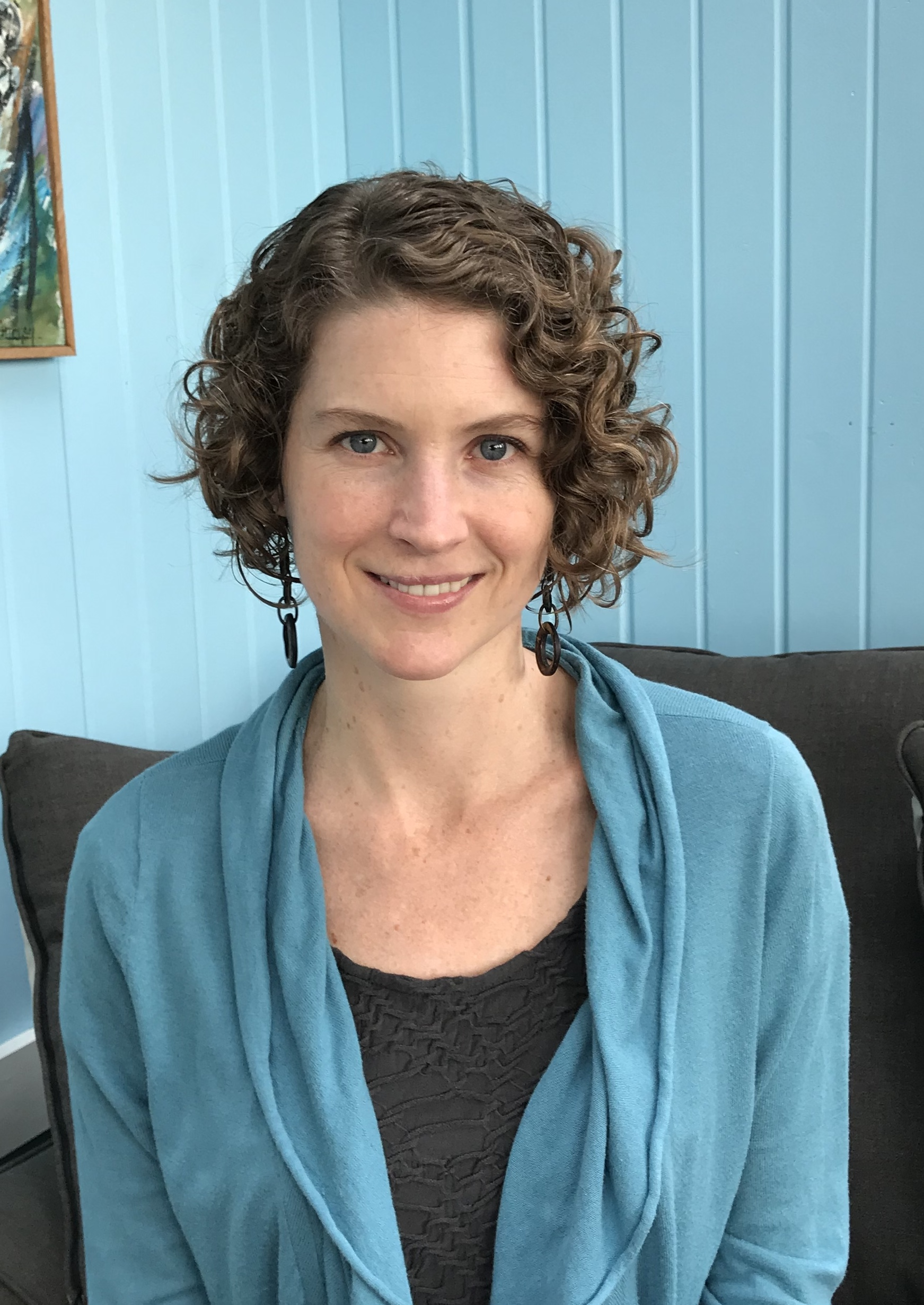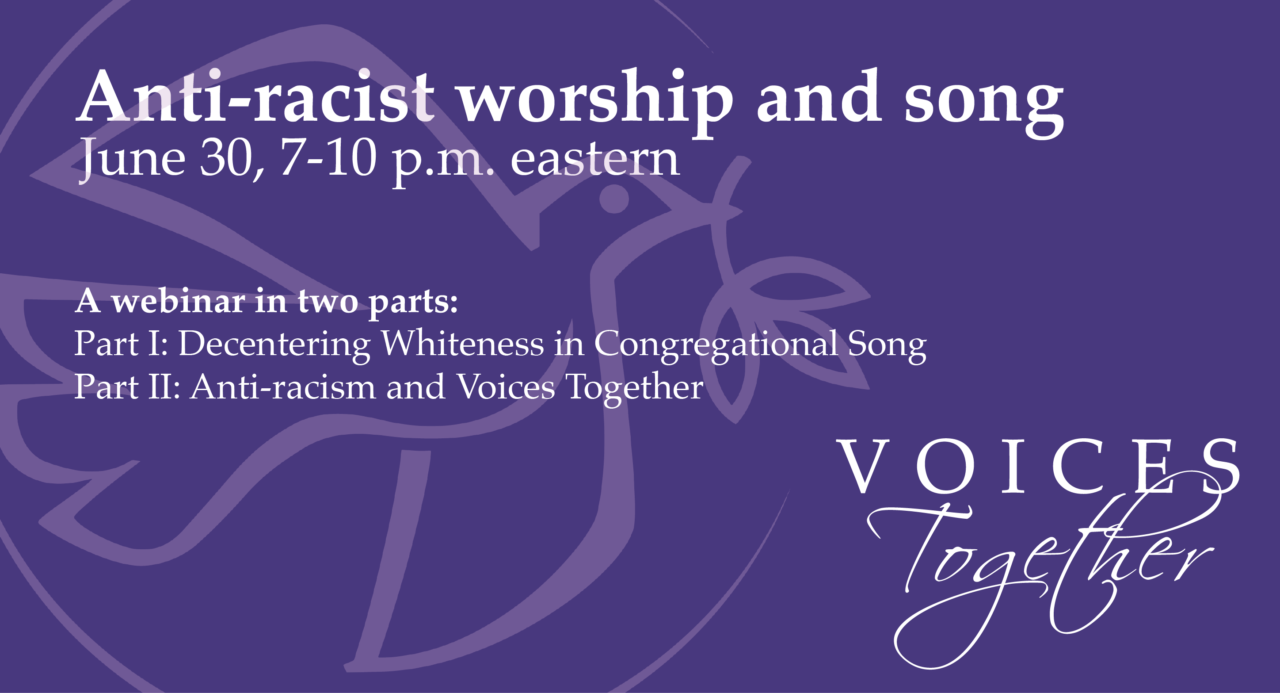This article is part of our series on Voices Together, the new worship and song collection from MennoMedia, in partnership with Mennonite Church USA and Mennonite Church Canada.
 Katie Graber is an ethnomusicologist, who studies race and ethnicity in a variety of contexts, including Mennonite music, American music and European opera. She has taught classes on Western music history and world music, and she accompanies Suzuki recitals and school choirs. She leads singing at her church in Columbus, Ohio, and chairs the Intercultural Worship committee for the Voices Together project
Katie Graber is an ethnomusicologist, who studies race and ethnicity in a variety of contexts, including Mennonite music, American music and European opera. She has taught classes on Western music history and world music, and she accompanies Suzuki recitals and school choirs. She leads singing at her church in Columbus, Ohio, and chairs the Intercultural Worship committee for the Voices Together project
_____________________
MennoMedia, Mennonite Church USA and Mennonite Church Canada invite you to a discussion about anti-racist worship and song on Wednesday, June 30, 7-10 p.m. EDT. This webinar will consist of two panels:
Part I: 7:00 p.m., “Decentering Whiteness in Congregational Song”
Part II: 8:30 p.m., “Anti-Racism and Voices Together”
In this webinar, panelists will explain how and why we should cultivate anti-racist worship practices. Instead of approaching anti-racism as a “special topic,” we should strive for all our worship habits to become more inclusive, just and emblematic of God’s reign.
The webinar will be divided into two 90-minute panels. The first, “Decentering Whiteness in Congregational Song,” will highlight in broad terms how congregational singing and words for worship can be respectful and inclusive. Topics of conversation will include: the usefulness and limitations of land acknowledgements, and how white Mennonite communities can engage anti-racism in an ongoing way rather than as a token event.
“Decentering Whiteness in Congregational Song” panelists:
- Andrea De Avila, pastor at Sargent Ave. Mennonite Church in Winnipeg, Manitoba, grew up in Mexico and has lived and studied in the U.S. and Canada.
- Tony Brown is the artist in residence and peace ambassador at Hesston College.
- Cheryl Bear, from Nadleh Whut’en First Nation, is an associate professor at Regent College in Vancouver, British Columbia and a multi-award winning singer/songwriter, who shares about Indigenous life through story and song.
- Melissa Florer-Bixler is pastor at Raleigh Mennonite Church in Raleigh, North Carolina, chair of L’Arche North Carolina and a community organizer.
- Geraldine Balzer is an associate professor in the College of Education at the University of Saskatchewan and works to enact decolonization, through her teaching and research.
The second panel, “Anti-Racism and Voices Together” will focus more specifically on songs and worship resources in the new hymnal, Voices Together. Panelists will discuss how they approach songs from other cultures, how they would like other people to approach songs from their cultures, and how worship resources can contribute to anti-racism.
“Anti-Racism and Voices Together” panelists:
- Shannon Dycus is the dean of students at Eastern Mennonite University and a Voices Together consultant on songs and worship resources celebrating Black traditions.
- Rashard Allen is the director of music and worship at Neffsville Mennonite Church in Lancaster, Pennsylvania and Voices Together central practices reader.
- SaeJin Lee is a children’s advocate at a domestic violence and sexual assault service organization and Voices Together committee member.
- Matthew Boutda is the director of music at Leaside United Church, Toronto, Ontario, and a Voices Together consultant on Lao language and music.
- Keshia Littlebear-Cetrone, Northern Cheyenne from Busby, Montana, is a student in entrepreneurial business and marketing at Grand Canyon University and a Voices Together consultant on materials related to Indigenous communities.
In a planning meeting, panelists discussed reasons for tending to anti-racism in worship planning. Rashard Allen said, “It’s not a question of whether worship should be anti-racist. God is just, and so our worship must be just!”
Andrea De Avila noted the range of emotions around anti-racism work. Confronting the damage of racism is important, even within a worship context. She said, “Guilt is not the goal, and focusing on repentance too much can make white people want to avoid the conversation altogether. Instead, we need to find joy in creating a language and way of worship that celebrates and upholds the dignity of every person.”
The panelists bring extensive experience and ideas about how worship and song is implicated in racism. Matthew Boutda has written about decentering whiteness in song, for example, in his blog post, “Engaging with Songs of ‘The Other’ in North American Mainline Churches.” He writes, “The prioritization of Western hymnody impedes the full expression of diverse and complex cultural identities, which are part of the image of God.” Tony Brown, as a committee member working on Hymnal: A Worship Book, analyzed light/dark imagery in hymns in the 1969 Mennonite Hymnal (see my blog post “White as Snow: Race and Church Music” for more on his study and the importance of treating these images with care). Other panelists bring insights as pastors, worship leaders and musicians, and the Voices Together committee often relied on their expertise during the process of compiling and editing songs and worship resources.
We hope you will join us June 30 for rich conversation and critical learning. We look forward to inviting participants into new ideas and practical suggestions that can instill your worship with equity and vitality.
For more information on Voices Together, visit voicestogetherhymnal.org.
The views and opinions expressed in this blog belong to the author and are not intended to represent the views of the MC USA Executive Board or staff.



